Cell Lines for NF1 Research
The tools and knowledge that are generated in our programs are made available to the neurofibromatosis community to ensure discoveries are advanced as quickly as possible.
Fueling your Research
Immortalized Human Plexiform Neurofibroma Cells Are Now Available for Free
Development of therapies for human disease remains dependent on well-characterized and validated model systems. Slow growing histologically benign tumors such as neurofibromas are challenging to grow in typical culture conditions. As a result, the scientific field has been without reproducible, well-characterized cell culture model systems for neurofibromas. A team of researchers from the University of Florida, the National Center for Advancing Translational Sciences (NCATS), and Sage Bionetworks with support from the Neurofibromatosis Therapeutic Acceleration Program (NTAP) at Johns Hopkins, have developed and characterized a set of immortalized patient-derived plexiform neurofibromas-derived Schwann cells in an initial effort to create a series of cells that represent the genetic diversity of human plexiform tumors.
Li et al , Laboratory Investigation, 2016 Oct; 96:1105 – 1115. PMID: 27617404
Ferrer et al, Scientific Data, 2018, 5:180106. PMID: 29893754
Please scroll down to learn more about the NTAP Cell Lines for NF1 reimbursement program.
These invaluable tools for developing therapeutics for the treatment of neurofibromas, and possibly other diseases, are now available for ordering from ATCC. Characterization information is available on Synapse.
NTAP will reimburse up to 100% of the purchase cost (up to $6,000) of these cells from ATCC when the associated research contributes to improved understanding of NF1 pathophysiology and therapeutic discovery. If you purchase the cell lines as a bundle to study heterogeneity, ATCC offers a 13% discount on the total price. NTAP will pay for the NF1-appropriate cell lines and the required shipping for those cell lines, but will not cover other costs (non-NTAP/NF1 cell lines or supplies and their associated shipping costs).
The table below shows the complete list of reimbursable cell lines, including the bundled option. Reimbursement does not apply to those who order only healthy Schwann cell lines (either CRL-3391 or CRL-3392, or both CRL-3391/CRL-3392).
| ATCC Part # | Product Description | Cell Type |
| CRL-3387 | hTERT ipNF05.5 (mixed clones) | Human plexiform neurofibroma |
| CRL-3388 | hTERT ipNF05.5 | Human plexiform neurofibroma |
| CRL-3389 | hTERT ipNF95.6 | Human plexiform neurofibroma |
| CRL-3390 | hTERT ipNF95.11b C | Human plexiform neurofibroma |
| CRL-3391 | hTERT ipnNF95.11c | Human Schwann cell, NF1 donor |
| CRL-3392 | hTERT ipn02.3 2λ | Human Schwann cell, non-NF1 donor |
| 30-5500K | Neurofibromatosis Cell Panel (bundled option) | Human plexiform neurofibromas and Schwann cells |
To order cells from ATCC
- Visit the ATCC website.
- Create a user profile (if a new user).
- Establish a customer account (if a new customer).
- Order the desired cells (per table above).
To begin the reimbursement process* after ordering the cells
- Download and complete the reimbursement application. Please review guidelines carefully.
- Within 90 days of purchase, return the completed application along with a copy of the invoice and proof of payment to info@n-tap.org.
*Purchasers from government agencies should not use the reimbursement application, but rather contact NTAP directly at info@n-tap.org with a request for a reimbursement.
For full guidance and details about the cell line reimbursement program contact NTAP.
About cell lines
Through exogenous expression of human telomerase reverse transcriptase (hTERT) and murine cyclin-dependent kinase (mCdk4) using retroviral (and subsequently lentiviral) vectors carrying the hTERT and mCdk4 genes, normal (NF1 wild-type, +/+), neurofibroma-derived Schwann cells that were heterozygous (+/-) for NF1 mutation, and homozygous (-/-) for NF1 mutation, were immortalized. In-depth characterization of the immortalized cells entailed real time PCR for hTERT and mCdk4, NF1 mutational analysis, and studies for karyotyping, cell authentication, contact inhibition, proliferation rate and doubling time, apoptosis, microsatellite instability, and tumorigenicity. To learn more and view characterization data, visit the Synapse page for Development of Plexiform Neurofibroma Cellular Assay for High-Throughput Screening.
Human NF1 Associated Plexiform Neurofibroma derived Induced Pluripotent Stem Cells (iPSCs) now available to the research community
Stem cells are cells early in their development before they have ‘been assigned’ a specific purpose (e.g. red blood cells to carry oxygen, white blood cells to fight infection). A group of researchers from the Germans Trias i Pujol Research Institute (IGTP) in Badalona (Barcelona), Spain, in collaboration with researchers from the Center for Regenerative Medicine in Barcelona (CMR[B]) have produced the first reprogrammed plexiform neurofibroma-derived NF1(-/-) and NF1+/- cells into induced pluripotent stem cells (iPSCs). This is a critical accomplishment as it creates a non-perishable source of cells not generally available for slow growing tumors that can be used in experiments requiring large amounts of cells such as drug screening studies. Furthermore the versatile nature of iPSCs will enable biological studies and drug testing at different stages of cellular development, which will ultimately improve our understanding of the relative contribution of each cell type to tumorigenesis and the effects of a drug treatment at each step of disease development.
The following plexiform neurofibroma-derived iPSCs have been banked in the Barcelona node of the Spanish National Cell Bank (Banco Nacional de Lineas Celulares), located at CMR[B] facilities:
- 3PNF_FiPSsv_PM_2
- 3PNF_SiPSsv_MM_11
- 5PNF_TDiPSsv_MM_4
- 5PNF_TDiPSsv_PM_6
- 6PNF_SiPSrv_PM_2
- 7PNF_SiPSrv_PM_12
To gather information about the deposited iPSC lines, follow this link
To request iPSC lines, follow this link
Any problems or questions regarding iPSC request, please email: bnlc@isciii.es
Genomic data generated for characterizing these cells with comparison to their primary donor pNF cells is openly available through the NF Data Portal.
